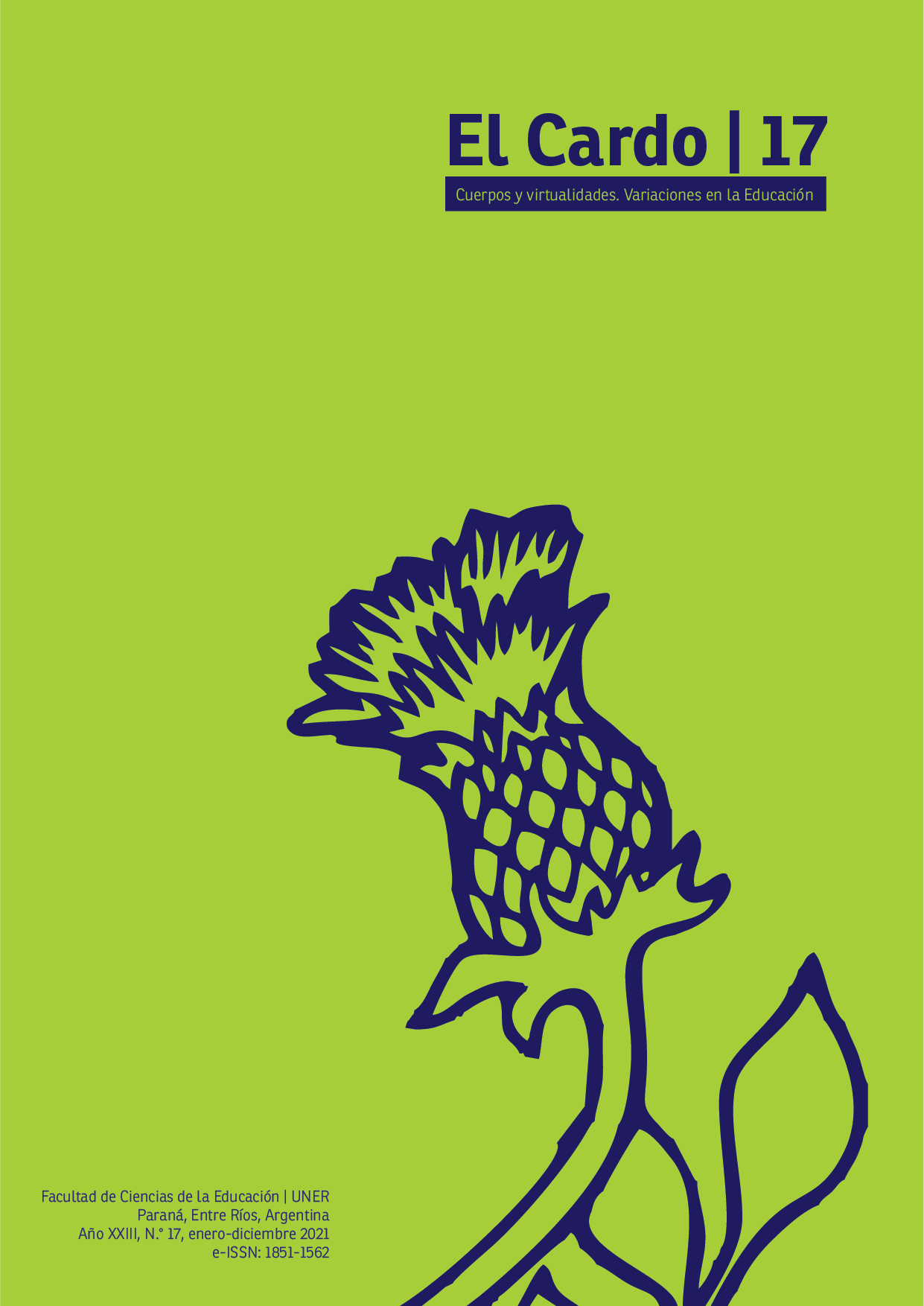Plan Ceibal: herramienta favorecedora de la enseñanza y del aprendizaje a distancia en el Uruguay. Oportunidades y desafíos ante la COVID-19
Contenido principal del artículo
Resumen
Este artículo se vincula a una investigación que lleva adelante la unam (méxico) con la participación de dieciocho países en relación al impacto educativo de la covid-19 desde febrero de 2020 hasta la fecha.
El 13 de marzo de 2020, ante la aparición de cuatro casos confirmados de coronavirus en el Uruguay, el Presidente de la República junto a las autoridades sanitarias y la Administración Nacional de Educación Pública (ANEP) como ente autónomo informó el cierre de todas las instituciones educativas del país por catorce días. Esta medida tan temprana, obligó a la plataforma educativa Ceibal, ya existente desde 2007, dependiente del Ministerio de Educación y Cultura, a moverse con agilidad para llevar adelante el trabajo a distancia. En dos meses, se multiplicó por once el acceso a la plataforma teniendo actualmente 650000 usuarios entre docentes y alumnos de primaria y secundaria media.
El Plan Ceibal, ya había creado una cultura digital en nuestro país que nos dejó bien posicionados frente al brote de este nuevo virus. Asimismo, esta plataforma creada para ser soporte de los planes educativos del país, fue posible gracias a que el Estado ha realizado en la última década una inversión de USD 600 millones en fibra óptica. Esto ha hecho posible que internet llegue al 80% de los hogares uruguayos con buena velocidad y a un precio accesible.
Esta coyuntura emergente, de todas formas, obligó a estrechar lazos entre las autoridades de la ANEP como ente autónomo, y el Ministerio de Educación y Cultura (MEC) generando instancias de trabajo conjunto que antes no existían o se nutrían de esfuerzos dispares, sin una estrategia común.
El objetivo de esta investigación ha sido desnudar las oportunidades y desafíos que representó para el Uruguay la instrumentación de esta plataforma. La técnica utilizada fue la realización de entrevistas semiestructuradas a diferentes autoridades de la ANEP y al presidente del Plan Ceibal, para poder descubrir luces y sombras de este proceso inédito para nuestro país y el mundo.
Fecha de recepción: 9/8/2020
Fecha de aceptación: 4/6/2021
Descargas
Detalles del artículo

Esta obra está bajo una licencia internacional Creative Commons Atribución-NoComercial-CompartirIgual 4.0.
Las ediciones no tienen cargos para las y los autores ni para las y los lectores, y se incita a las y los autores a depositar sus contribuciones en otros repositorios institucionales y temáticos, con la certeza de que la cultura y el conocimiento son un bien de todos y para todos. El Cardo permite la reutilización luego de su edición (Post print) citando la autoría y la fuente original de su publicación. Su uso no puede ser con fines comerciales.
Citas
ALLIAUD, A y VEZUB, L. [En línea] (2014). La formación inicial y continua de los docentes en los países del MERCOSUR. Problemas comunes, estructuras y desarrollos diversos. En Cuadernos de investigación educativa, 5(20), 31-46. [Consulta: 24 de abril de 2020]. Disponible en: https://ie.ort.edu.uy/innovaportal/file/20302/1/cuad_20_cap1.pdf
ANEP. [En línea] (2020). Sugerencias orientadoras de la ANEP para docentes y comunidades educativas en el marco de la emergencia sanitaria. [Consulta: 5 de mayo de 2020]. Disponible en: https://www.anep.edu.uy/15-d-covid19informaci-n/sugerencias-para-docentes-y-comunidades-educativas-para-enfrentar-educaci-n
CASABLANCAS, S. [En línea] (2013). La cuestión de la formación docente en los modelos 1 a 1. El caso del proyecto Piloto Escuelas de innovación dentro del programa «Conectar igualdad» (República Argentina). En Educar, 50/1, 103-120. [Consulta: 12 de junio de 2020]. Disponible en: https://educar.uab.cat/article/viewFile/v50-n1-casablancas/57-pdf-es
LÓPEZ, N. [En línea] (2016). Inclusión educativa y diversidad cultural en América Latina. En Revista Española de Educación Comparada (27), 35-52. [Consulta: 30 de marzo de 2020]. Disponible en: http://revistas.uned.es/index.php/REEC/article/vie w/15034
MARTÍNEZ BONAFÉ, J. [En línea] (julio-diciembre de 2004). Crisis de identidad profesional y sujeto docente. En Educación y realidad, 29, 55-64. [Consulta: 24 de abril de 2020]. Disponible en: https://seer.ufrgs.br/educacaoerealidade/article/viewFile/25392/14727
NÓVOA, A. [En línea] (2009). Para una formación de profesores construida dentro de la profesión. En Revista de educación (350), 203-218. [Consulta: 10 de abril de 2020]. Disponible en: http://www.educacionyfp.gob.es/revista-de-educacion/inicio.html
TERIGI, F. (2014). Educación y políticas sociales. Sinergias para la inclusión. Buenos Aires, Argentina: UNESCO.
VAILLANT, D. [En línea] (2006). Atraer y retener buenos profesionales en la profesión docente. Políticas en Latinoamérica. En Revista de educación (340), 117-140. [Consulta: 2 de junio de 2020]. Disponible en: https://dialnet.unirioja.es/ejemplar/141771
Entrevistas realizadas
CAGGIANI, P. (2020). Entrevista personal plataforma Meet, 23 de mayo.
FOLGAR, L. (2020). Entrevista personal plataforma Meet, 13 de mayo.
RICAMONTE, M. (2020). Entrevista personal plataforma Meet, 19 de mayo.

